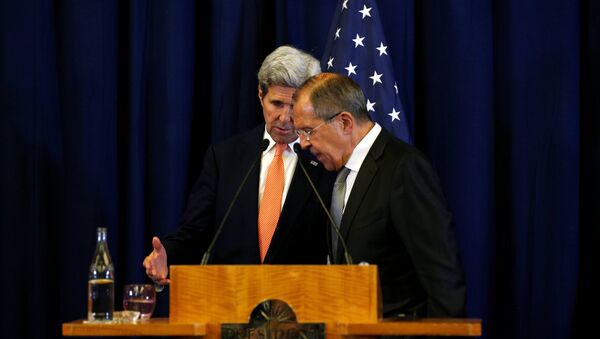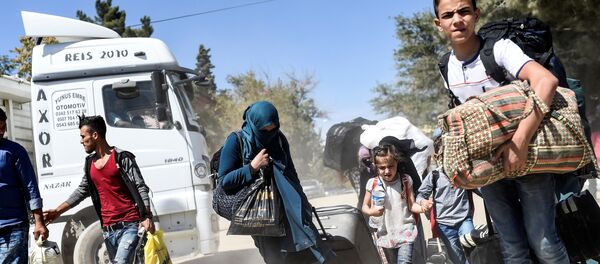Stratfor provided its own analysis on what unspoken rationale might be behind the accords.
"With only four months left in US President Barack Obama's final term in office, time is running short for the two rivals to make headway […] before having to start fresh with a new administration," reads an article on its website.
Hence, it suggests," the United States and Russia are trying to make the most of the waning days of the Obama administration."
After all, it further says, "both sides stand to gain from making meaningful progress […] before Obama leaves office."
The author suggests that "as the clock runs down on his presidency, Obama has his legacy to think about."
Russia, says Stratfor, has "an interest in dealing with the "devil it knows" before an unfamiliar negotiating partner assumes power in Washington."
"Though its agenda in Syria may be largely aligned with Russia's for now, the United States will have a hard time isolating the rebel groups it proposes to target jointly with Moscow," it suggests.
Another suggestion is that "Turkey will stay focused on limiting Kurdish expansion and will use the cease-fire in Syria as an opportunity to fortify the rebel groups it supports."
Saudi Arabia, in turn, "unnerved by a US-Russian alignment on Syria that favors Iran, will also try to strengthen rebel factions it backs."
Moreover, Iran and Syria, it suggests, "are unlikely to agree to a power-sharing arrangement."
Yet the efforts of the two countries have not been in vain, the article says. "After all, a cease-fire is a small but necessary step toward ending either conflict."
The author however does not stop there and suggests that there is "a similar agreement which appears to be taking shape in another theater of the standoff between Moscow and the West."
The announcement is seen as a major step in solving the conflict that has raged for more than two years.
On Wednesday, Germany's Foreign Minister Frank-Walter Steinmeier said during his visit to Kiev that "Ukraine guarantees to observe the ceasefire in the country’s war-torn eastern region of Donbass for at least seven days."
During the news conference with his French and Ukrainian counterparts, Germany's diplomat said that he also had "a commitment from Moscow," as reported by Euronews website.
Stratfor therefore suggested that "Moscow and Washington have reached a crucial point in their negotiations over Syria and Ukraine, two of the most contentious areas of their dispute."
"Moscow could not have promised [a full cessation of hostilities], because it is not a party to the conflict in Donbass," Peskov said, answering a question about Russia's reported promise to German Foreign Minister Steinmeier.
Moscow repeatedly stated that it is not involved in the developments in the south-east of Ukraine and is not a party to the internal Ukrainian conflict, but it stands for the soonest resolution of Ukrainian political and economic crisis.
The Kremlin spokesman therefore underlined that Russia is acting as a guarantor of the settlement of the Ukrainian crisis and not a party to it.






